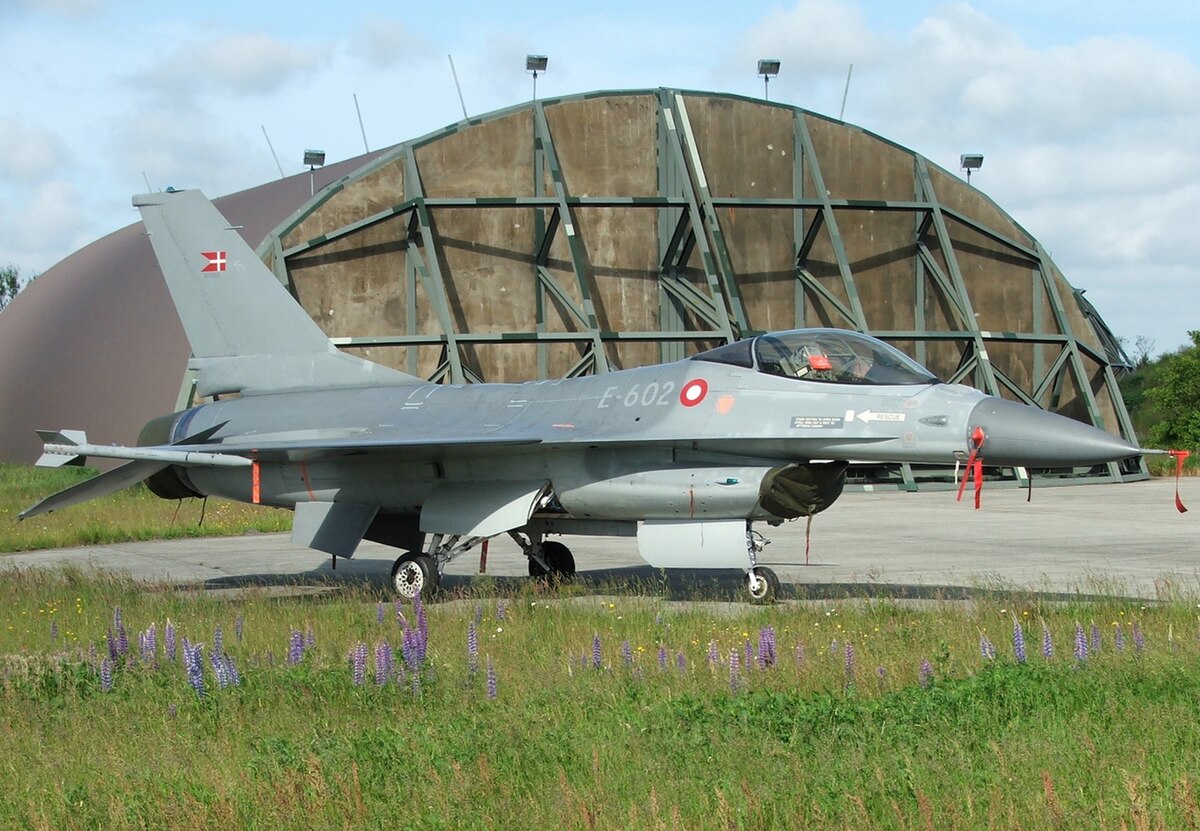Argentina’s purchase of used Danish F-16 Fighting Falcons raised concerns among British lawmakers, but experts are now downplaying the perceived threat, arguing that Argentina does not pose a significant danger to the Falkland Islands.
In an article for the popular British defense magazine UK Defence Journal (UKDJ), military expert George Allison stated that although Argentina’s recent acquisition of F-16 fighter jets may seem like a major military advance for the country, the South Atlantic scenario remains mostly unchanged.
Allison pointed out that although the acquisition theoretically strengthens Argentina’s air force, the Falkland Islands are still far from being seriously threatened by it. He stated that “the ongoing challenges of obsolete equipment, insufficient resources, and diplomatic limitations persist in hindering progress.”
Argentina’s armed forces have been on the decline for many years. George highlighted that the Argentine Air Force had trouble keeping even a small number of its aircraft in service before the F-16 deal. It grounded the A-4 Skyhawks, which had previously been the mainstay of its air force, and decommissioned its fleet of Mirage fighters.
Criticizing the Argentine military, Allison asserted that the nation’s ground forces are seldom provided sufficient training resources, are poorly equipped, and suffer from inadequate financial support. Their equipment is largely from the 1970s, and maintenance issues regularly cause aircraft to be grounded and navy vessels to become inoperable.

The expert also highlighted the gaps in the nation’s defense budget, pointing out that most of it goes toward paying personnel, leaving little money for large new acquisitions. He said that while proposals to purchase $2 billion worth of modern equipment have been under review, such goals appear utterly unachievable in light of the current financial constraints.
“Even with F-16s in their arsenal, Argentina doesn’t have the budget to maintain or modernize its military to the extent needed for a credible regional challenge,” the expert concluded.
The statement does not align with the official stance of the publication or the British government, but its timing is noteworthy. The UK is closely monitoring Argentina’s acquisition of the older F-16s.
F-16s “Sitting Ducks” For Russian MiG-31 Fighters? Putin Warns Of Consequences Over Fighting Falcons
In April this year, Argentina’s President Javier Milei and Defense Minister Luis Petri announced that the country had finally signed an agreement to purchase two dozen second-hand Danish F-16 Fighting Falcons for about $300 million.
“With these new aircraft, we are taking a transcendental step in our defense policy,” Petri said via video from Copenhagen. “From today, Argentines, we once again have forces from heaven to protect us,” Petri added. The F-16s will replace the aging Argentine A-4 Fightinghawks and likely fill the void left by the retirement of 16 Dassault Mirage III fighter jets in 2015.
The Argentine Acquisition of F-16 Is Being Watched
The Argentine Air Force has long sought to obtain a new fighter aircraft. However, the nation’s precarious financial situation and the British embargo have hindered these efforts.
The acquisition has piqued the interest of the UK because of the historical tensions between Argentina and the United Kingdom regarding the Falkland Islands, an Argentinean-claimed overseas British territory situated approximately 13,000 kilometers from British shores.
Argentina invaded the Falkland Islands on April 2, 1982. In response, the UK dispatched a naval task force to take on Argentina’s air force and navy. Subsequently, a significant amphibious offensive culminated in a decisive victory for the British forces. The British have maintained complete control over the island for 42 years.
The UK placed an export embargo on Argentina following the 1982 war to prevent the military from modernizing. In enforcing the plan, Britain barred Buenos Aires from acquiring fighter jets by restricting access to parts made in the United Kingdom.
For the most part, the restriction worked; the British embargo prevented Argentina from acquiring aircraft like the Swedish Saab Gripen, which had Martin Baker ejection seats, and the South Korean FA-50 trainer/light fighter.
Despite that, it has never completely dismissed the possibility of a potential Argentine attack on the island. Earlier, Robert Buckland MP, the chair of the Northern Ireland Affairs Committee, expressed his concerns about Argentina’s purchase and questioned Britain’s Secretary of State about the country’s current South Atlantic defensive posture.
Assuaging these concerns, the Minister of State at the Ministry of Defence and Minister for the Armed Forces, Leo Docherty, said, “We keep our defense posture in the South Atlantic under regular review to take account of the full range of developments. I am satisfied that the current military presence in the South Atlantic is at the appropriate level to ensure the defense of the Islands.”
While the acquisition of F-16 jets has been keenly watched in Britain, several observers have noted that the jets are obsolete and would not pose any threats. Moreover, experts reckon that they would not be able to match the military might of the British forces.
There is a sizable British military presence in the Falkland Islands, with RAF Mount Pleasant acting as a vital airbridge linking the islands to the United Kingdom. Mount Pleasant Complex was opened in 1985 to establish a fighter and transport presence in the Islands.
- Contact the author at sakshi.tiwari9555(at)gmail.com
- Follow EurAsian Times on Google News